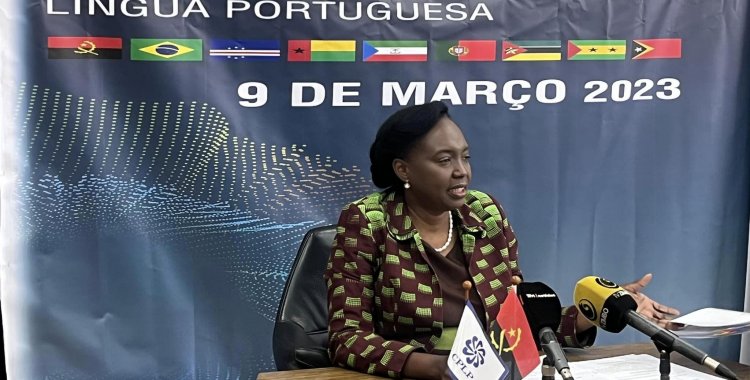On the occasion, the minister indicated the need for voluntary contributions to the CPLP Special Fund, "assigned to the PECS-CPLP 2023-2027".
"Like what was done in September 2009, at the first and only round table of CPLP development partners for the health sector held on September 8, 2009, at the Centro Cultural de Belém, in Lisbon, which was attended by around 150 participants, I believe it would be relevant for the CPLP to present itself with a minimum envelope of financial resources to leverage some of the initiatives foreseen in the PECS-CPLP", she said.
Thus, she left an invitation: "Therefore, as acting president of the Meeting of Ministers of Health of the CPLP, I would like to invite you to make a voluntary contribution, in the amount you deem appropriate, to the Special Fund of the CPLP, assigned to the PECS-CPLP 2023-2027".
Explaining that the meeting has "a single point on the agenda", which involves analyzing the PECS-CPLP 2023-2027 proposal and its approval, the minister said that for Angola, the PECS-CPLP "continues to be necessary and opportune" , there being no doubt "that this is the main instrument for guiding CPLP cooperation in health".
"It is the PECS-CPLP that allows us to anchor cooperation in health between our Member States that we believe to be mutually advantageous, as well as to increase our Community's relationship with different development partners, within the scope of the 2030 Agenda for Sustainable Development", said Silvia Lutucuta.
The holder of the Health portfolio also mentioned that the plan constitutes "an opportunity to increase trained human resources, to reinforce the role of the National Institutes of Public Health, to increase epidemiological surveillance in our States and for education in the health of our population".
"The PECS-CPLP 2023-2027 recognizes the training of human resources and research as strategic points for managing the adequate response of our systems to global health security", said the minister, adding that the plan also brings "novelties in its structure of monitoring and governance, providing for the holding, on an annual basis, of a meeting of the Advisory Entities to assess the degree of execution of the PECS-CPLP, from which, whenever this proves to be relevant, adjustments or revisions to the Plan may arise, which will be submitted to the CPLP Meeting of Ministers of Health".
In her speech, she also said that "this point is particularly relevant" and that he believes "that it will bring comfort to all Member States, as it will allow for a timely adaptation of the PECS-CPLP to new dynamics or proposals" resulting from the community vision, "from evolution of the international sanitary framework, as well as the transversal alignment with other CPLP cooperation activities with which an articulated and complementary dialogue is foreseen".
The minister also said that the new edition of PECS-CPLP will enable "the formalization of an increasingly consistent partnership with CPLP civil society, through joint work with the Thematic Commission of Consultative Observers of the CPLP for the Health sector and Food Security".
In addition, she also referred that the first edition of the PECS-CPLP was approved in 2009, with Brazil, Cape Verde and Portugal contributing financially "to the effort to launch and implement the PECS-CPLP".
"The resources then identified by these three Member States, in the order of 400 thousand euros, allowed a structured dialogue with the World Bank that leveraged an additional financial contribution of over 500 thousand euros", added the minister.
The minister explained that "it was the sum of these resources" that made it possible for the "PECS-CPLP to structure itself as a true mechanism of cooperation in health of the CPLP", which has had important results for the Member States.
Evidencing that "without resources there can be no cooperation", the minister reassumed Angola's commitment "to holding the 1st CPLP Conference on Primary Health Care (CSP), to be held in Luanda by the end of 2023, the implementation of which we intend to support technically and financially".
"To this end, it will be very important to maintain the CPLP's articulation with the World Health Organization (WHO), aligning the priorities of the PECS-CPLP with the priorities of this organization, but also with the priorities of the multilateral organizations of the United Nations system Nations, regional organizations that our Member States integrate, as well as with our Associate Observers", he advanced.
The minister concluded by saying that she understands that to ensure the best execution of the 2022-2024 Action Plan, "it is opportune" to continue with "interaction and mutual help, through cross-learning and knowledge sharing between countries, documenting positive experiences, that can be replicated in the context of the Member States".
"This intersection of lessons learned, which has been so advantageous in the CPLP's cooperation in health, is fundamental to respond to the most recent international information that we have, which allows us to perceive some improvement in indicators such as average life expectancy, infant mortality, maternal mortality and health coverage", she added.







